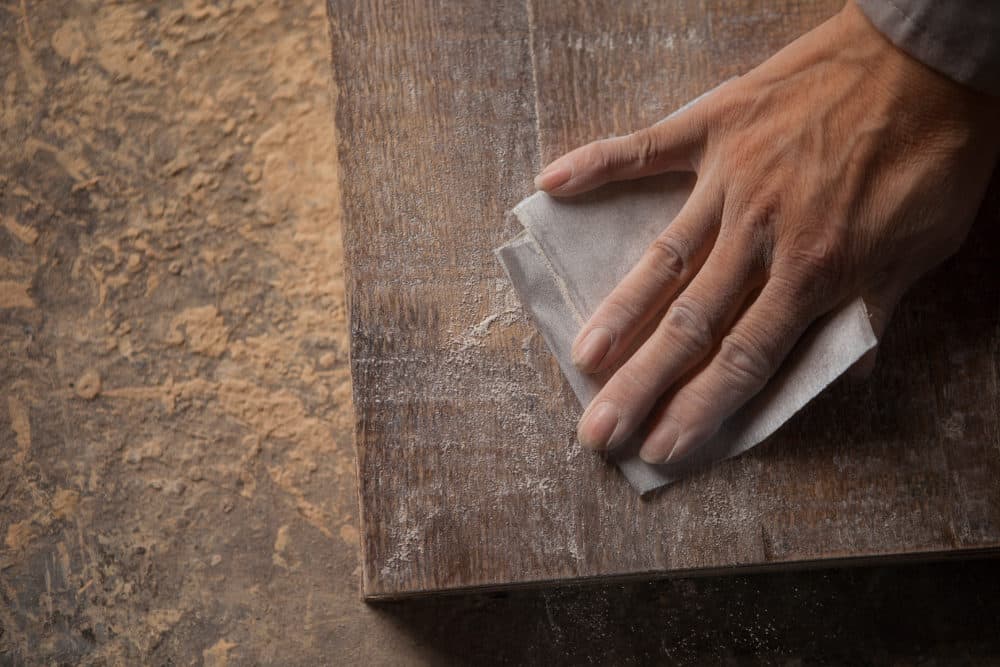Advertisement
Frictionless Interfaces Are Going To Change Our World

Love him or hate him, Gary Vaynerchuk has made a lot of good bets on technological shifts. Here he is at VoiceCon 2018, talking about "why voice will win."
The language is predictably curse-laden and Vaynerchuk has a free-wheeling, scattershot delivery. But it's a worthwhile, eye-opening, 52-minute roller-coaster ride.
In particular, his concept of "friction" has really resonated with us at Project CITRUS.
What Do We Mean By 'Friction'?
Take a look at Amazon. They are hugely successful, in no small part, because they have reduced the amount of friction in the sales process. Think of all the non-Amazon shopping carts you have abandoned across the web: because the site required a log-in, because it didn't have PayPal integration or simply because your wallet was in the other room.
That hesitancy, that frustration, that inertia — it's friction.
Let's look at an everyday, relatable example. Every morning, I get in my car and have two listening options: radio or podcasts.
Option A: Radio
Radio is very simple:
- Just hit the FM button (if not already on FM).
- Choose a station from the presets (if the desired station is not already chosen).
Amount of friction: Approaching zero.
Option B: Podcasts
Podcasts — at least in my 2013 car — are more complicated:
- Fish for the end of the dangling AUX cable.
- Plug the cable into the phone.
- Mount the phone on the dash.
- Press the AUX button.
- Unlock my phone.
- Open the podcast app.
- Choose a playlist.
- Peruse the most recent podcasts in the playlist and choose one.
- Press play.
- Wait for the podcast to start.
- Adjust the volume accordingly.
Amount of friction: Appreciably more than zero.
Here's the good news for radio. The average car in the U.S. is nearly 12 years old — older than mine — which means there's even more friction if you don't want to listen to the radio.
But here's the bad news. Newer cars have significantly reduced that friction. A dependable Bluetooth connection means no more AUX cable. Android Auto and Apple's CarPlay mean a familiar phone UI that's presented on a large, crisp, in-dashboard screen; no more fiddling on your phone's much-smaller screen. And in cars where Alexa comes built in — not as a clunky hardware add-on — the friction is down to a bare minimum.
Or consider this scenario. It's late at night. The trains have stopped running and you need a ride home. You have two options: Use a ride-hailing app, or get a cab.
Option A: Ride-Hailing
- Look at your phone.
- Open the app.
- Choose your destination (home, the exact location of which is already known to the app).
- Wait for your ride. (Since you know how long it will take, you can wait inside where it's warm, or grab a snack for the trip.)
- Get in the car.
- Arrive at your home.
The amount of friction? Very low.
Option B: Cab
- Find a cab stand, or stand in the street and hail one.
- Get in and tell the cabbie where you want to go.
- Provide directions along the way.
- Arrive at your home
- Go through the payment process.
- Calculate the tip.
- If you're expensing the ride, wait for a receipt.
The amount of friction? Not bad, but still decidedly high compared to the above scenario.
Vaynerchuk confesses that, early on, he was skeptical of Uber's business model — young consumers "can't afford it!" — but ultimately realized it would win the day because "convenience is king." And that convenience not only means less hassle; it also means more time. "Time," he adds later, "will always win. Besides health, time is the thing we value. Money comes behind that." Not even privacy stands a chance: "We will give up privacy all day, to win back three minutes."
But keep in mind that, as cool and low-friction as mobile apps are, they still involve some friction.
What has even less friction than these slick apps? Voice interfaces.
The Interface With Zero Friction
A few years ago, I was playing Nerf hoops with my daughter in the basement. There was a lot of horseplay and screaming, and even more laughter. It was one of those pure, ethereal parenting moments that you remember years later, clear as day. And right in the middle of all the commotion, without really thinking or looking away, I said to my smart speaker: "Play 'Basketball' by Kurtis Blow."
Only hours later did the penny drop. "Wow," I thought to myself. "I am soundtracking my own memories." (Aside: Is this not the initial mainstreaming of audio augmented reality?) This never would have happened if I had needed to pull my phone out and fumble with it. Why? Because friction kills. It would have ruined the moment.
Holding up his phone, Vaynerchuk intones: "This is still friction. As crazy as it sounds, grabbing [a phone] and doing something is still friction." Pointing at his mouth, he adds, "This is not."
When faced with choices that involve equal friction, people will always choose the more desirable and feature-rich experience. And on-demand has quickly become the norm for entertainment. Do you sometimes find yourself instinctively trying to rewind live radio? Other than live sports or breaking news, when's the last time you watched a TV show when it was actually airing? If you had the audio equivalent of on-demand TV/DVR in your car, with a near frictionless interface, would you choose it over live radio? Of course you would.
And don't discount how much impact a seemingly trivial reduction in friction can have. When I walk into my kitchen, I can flip on my radio, or I can say, "Alexa, play WBUR." It's a tiny, almost comical, difference. But I find myself listening to the radio much more often, even if I'm only in the kitchen for a few minutes, to unload the dishwasher or grab a midnight snack.
These changes may seem tiny now, but they will only compound. Car technology will improve. The on-demand audio competition will grow. Older cars will be scrapped and handed down, to be replaced by newer ones.
All the while, the friction will become less and less. And those interfaces with the least friction will rule the day and change the way we live.
